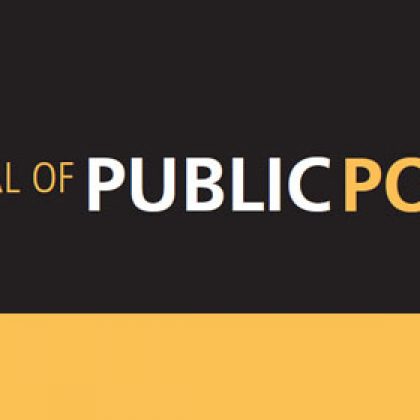The rocky road to vaccine equity? Big pharma vs the people
Big pharma companies have gone to extreme lengths to squeeze every last dollar out of the Covid-19 pandemic, regardless of the huge human cost. Even as billions of people in lower-income countries couldn’t access a vaccine, pharma companies refused to share their patents and know-how with manufacturers in the global south. Faced with legal challenges to their vaccine monopolies, big pharma beefed up the budgets of an already powerful legion of lobbyists, while rattled industry CEOs spat indignantly at the prospect of countries outside their fiefdom making vaccines. Now, after investigative work by the Intercept, we know that big pharma also tried to censor activists’ demands for a generic vaccine.
The report from The Intercept found that BioNTech, the smaller company behind Pfizer’s extremely profitable Covid-19 vaccine, contacted Twitter in December 2020 to pressure them into hiding activists’ tweets which called for laws to allow global south manufacturers to copy Covid-19 vaccines.
In the case of the BioNTech/Pfizer vaccine, hundreds of scientists across the world, many of them publicly funded, contributed to the development of the mRNA technology employed, while the German government also gave the company nearly €500 million more to develop the vaccine. The German government is also reported to have contacted Twitter on BioNTech’s behalf.
Big pharma companies would like us to believe they have earned the right to control and monopolise vital medical breakthroughs, including the Covid-19 vaccines, but this ignores their heavy reliance on public research and tax-payer funding. By the time of BioNTech’s intervention, it had already become abundantly clear that the global rollout of vaccines would be deeply unequal. The world’s richest nations had hoovered up supply contracts, paying big pharma companies well over the odds to assert their position at the front of the queue.
Realising the danger they were in, over 100 nations had proposed a suspension of intellectual property rules on Covid-19 vaccines, treatments and tests. This would allow manufacturers in the global south to join the production effort, without the threat of being sued by the big pharma companies that held the patents. The call was backed by a growing international movement, which soon included dozens of Nobel Laureates, the president of the US and the Pope. And it was these demands that BioNTech aimed to suppress.
While it remains unclear whether Twitter eventually took action to gag activists’ demands, the fact that big pharma would exploit the real crisis of online disinformation around vaccines to censor our movement’s criticisms of vaccine monopolies is deeply concerning. Furthermore, it has been revealed that big pharma was putting severe pressure on governments not to back an intellectual property waiver, making threats of reduced investments to several countries.
Whether through lobbying, threats, or the obsequious support of governments including the EU and the UK, big pharma was allowed to maintain its monopolies, bringing disastrous results. Just 1% of BioNtech/Pfizer’s vaccines were delivered to low-income countries in the first year of production and we now know that 600,000 people in low- and middle-income countries died unnecessary deaths in 2021 alone because vaccine doses were not shared equitably. Against this backdrop, BioNTech celebrated revenues of £16.7 billion in 2021, with obscene profit margins of 54%. Pfizer and Moderna, the pandemic’s other big winners, also pulled in record sales.
BioNTech isn’t the first pharma company to intimidate people taking action for their rights to health. When, at the peak of the AIDS epidemic in South Africa, Nelson Mandela’s government passed a law that could have allowed his country to import cheaper generic HIV medicines, 39 pharma companies responded by launching a lawsuit against the country. Colombia suffered a similar fate when it explored the idea of producing generic leukaemia drugs domestically.
BioNTech’s insidious tactics come amid a growing battle for control over the mRNA technology used in the Covid-19 vaccines. Last year, a breakthrough ‘mRNA vaccines hub’ in South Africa announced it had successfully reverse-engineered an mRNA Covid-19 vaccine. The hub has already started work on a new TB vaccine and aims to make vaccines for other diseases like HIV and malaria. In a thrilling development, the hub has decided not to simply control and extract profit from its work, but is sharing its intellectual property widely and teaching countries across the global south how to make mRNA vaccines.
However, shortly after the mRNA hub announced its successful replication of the Covid-19 vaccine, it was reported that a little-known consultancy, KENUP, had been lobbying the South African government to ‘terminate’ the hub project. Instead, the agency backed a proposal to ship mRNA factories housed in sea containers from Europe to Africa. The company building those containers? BioNtech. The company that hired KENUP? BioNtech.
With a growing movement calling for medical science to be thrown open for collaboration and access, and scientists across the world taking matters into their own hands, clear alternatives for vaccine equity exist. If we’re to learn from the catastrophe of the pandemic and prepare for future health crises, it’s vital we back them
Tim Bierley is Pharma Campaigns Manager at Global Justice Now. For more information: www.globaljustice.org.uk.
Articles on this topic in Business and Human Rights Journal include:







Hello Tim, I have just recently finished reading RFK JR’S book that exposed the corruption of the vaccine lobby (the real anthony faucci). I find it very interesting that whenever you search “the vaccine lobby” on google there are minimal articles given. And just the fact that this paper only has 2,209 views makes me extremely skeptical. I see that you are pharma campaigns manager at global justice now and was wondering if we could speak over the computer or phone. I am currently a university student at the university of Arkansas, studying pre-med. My email is jackf@uark.edu